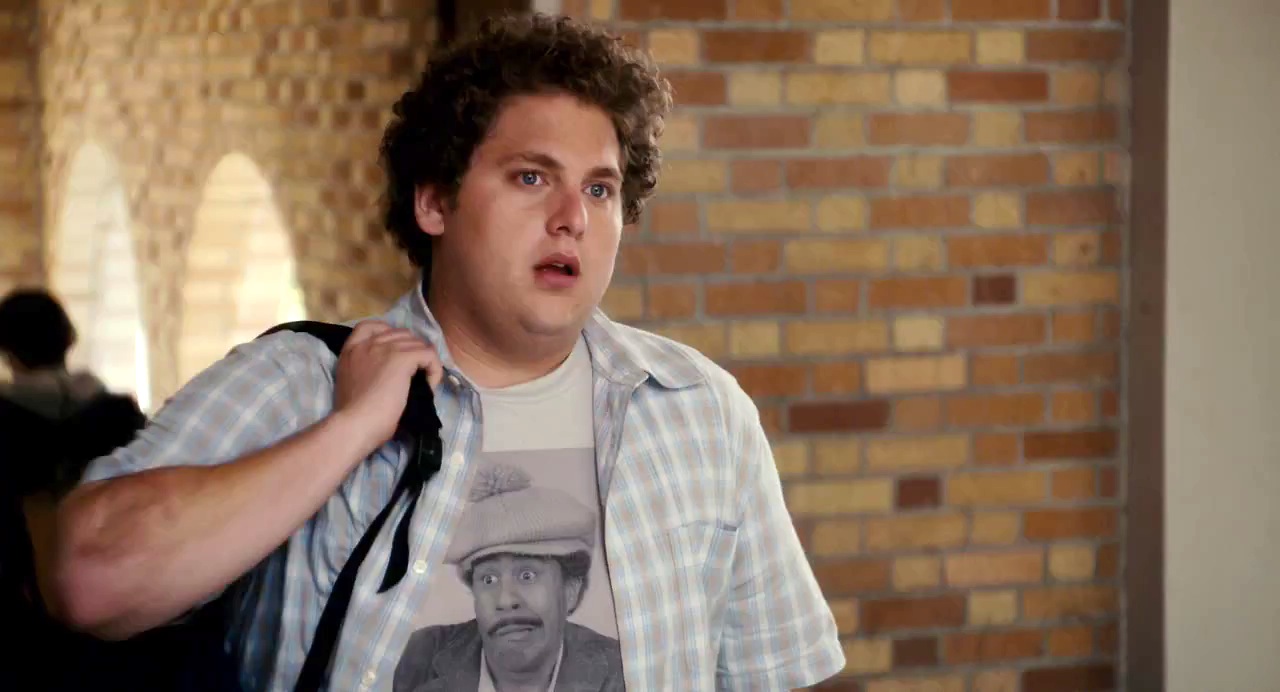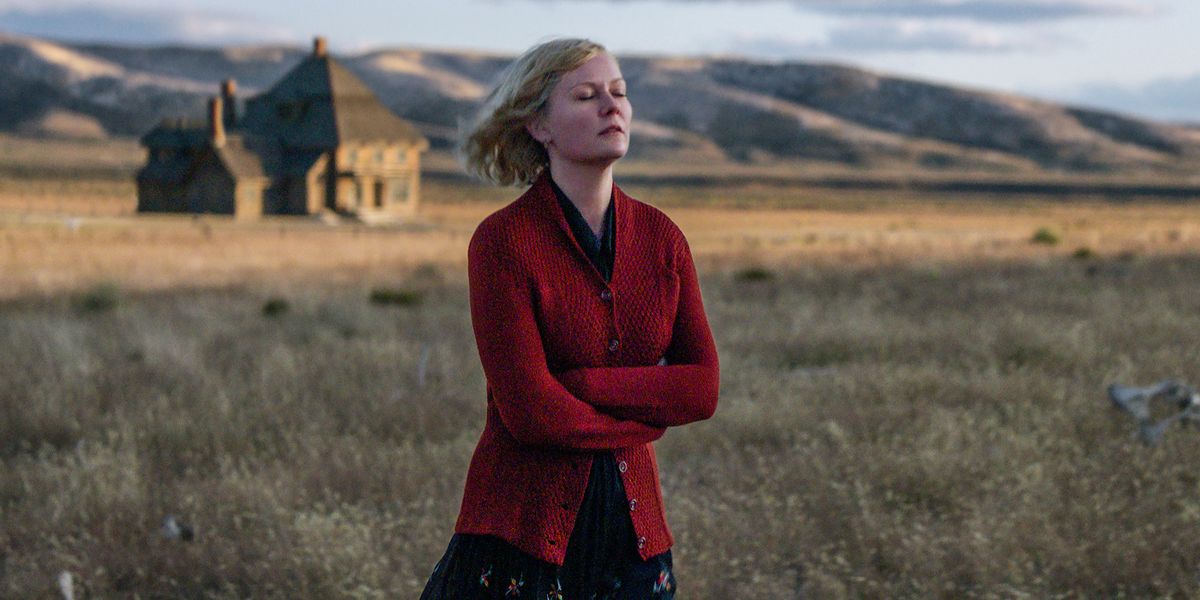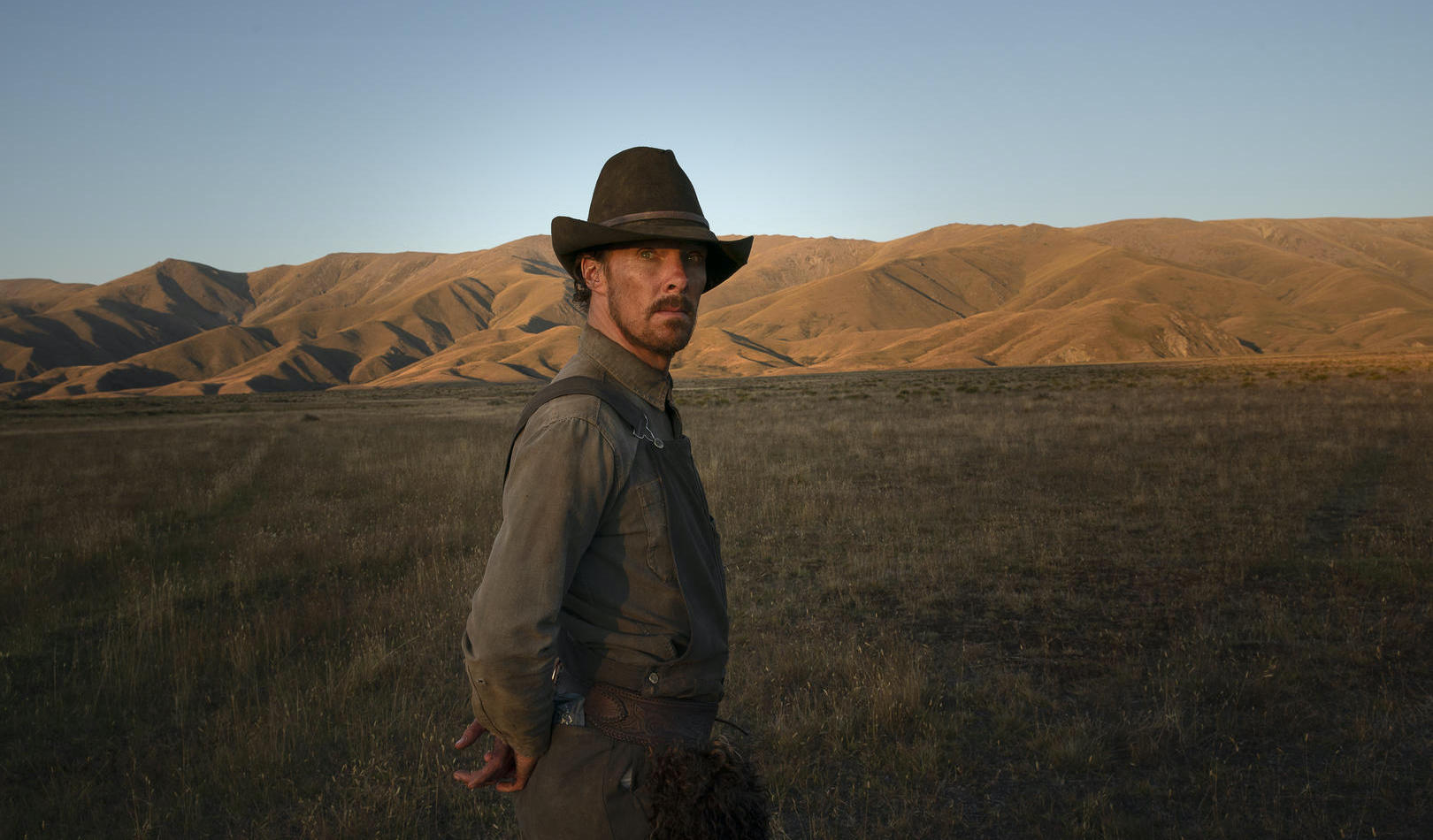Spoilers Abound for 2021’s The Power of the Dog — Reader Beware!
In spite of the unexpected half-foot of November snow that derailed my transit home from the theater, and the windshield wiper that unceremoniously abandoned ship and ejected across the highway along the way, what surprised me most about my trip to see The Power of the Dog was how much Benedict Cumberbatch’s Phil Burbank reminded me of Jonah Hill in Superbad.

Which is certainly not how I expected to start a review of Jane Campion’s brilliantly meditative western—a tension-filled family drama backdropped against early-20th-century Montana, which pits Cumberbatch’s dust-caked rancher at odds with his brother George (Jesse Plemons), his new sister-in-law Rose (Kirsten Dunst), and her son Peter (Kodi Smit-Mcphee). But in spite of menace that pervades Cumberbatch’s already Oscar-buzz-drenched portrayal of the domineering cowpoke, there is a decidedly juvenile, Seth-from-Superbad-esque energy to the barbs Phil hurls at his brother throughout the film—a barely-veiled attempt to prevent George from moving on from a period Phil is desperate to cling to.
Unsurprisingly, The Power Of The Dog is somewhat less concerned with the content of those tormenting jabs than my 2000s buddy comedy comparison-point, and more with the rope-like intertwining of the pathos behind them and the consequences they reap.
Across its 126 minutes, the threads of Phil’s tumultuous masculinity, his sexuality and repression, his longing for an already vanished history, his monstrous need to diminish Rose, and his disgust for and later grooming of Peter, each first unspool, then tangle together as if inevitably bound.
The real genius of the film is Campion’s restraint in the telling. In place of exposition, the New Zealand director deploys a meticulous fixation with small details to deliver her story, depending on offhand glances at a magazine cover or a gloved hand to carry the narrative burdon. Framed with a nuanced precision by DP Ari Wegner (hot off the heels of her work on the gorgeously rendered Floridian epic, Zola), each essential plot point unveils with the weight of significance in hindsight, but without ever leaping off the screen in the moment.
The same can be said for what is kept from us. In a contorted imitation of the repression at the heart of the story, the most unvarnished and revealing moments of each characters’ true nature are often heard but not seen, implied just out of frame.
Those familiar with Campion’s oeuvre (The Piano, The Portrait of a Lady, Top of the Lake) will likely come to her newest film well-versed in her careful, layered approach to character study. Those who are new to the decorated New Zealand director will not take long to discover her uncompromising dedication to affording a Whitman-esque multitudinous existence to each player inside her purview, often through the most tellingly small moments (a raging tormenter cradles his former love’s kerchief in a field; a sociopath in the making vigorously hoola hoops); and it’s that willingness to embrace the complexity of her characters, coupled with their brilliant portrayals, which helps to fully immerse us in a world that could otherwise feel consigned to distant archetype.
Cumberbatch, for his measure, has finally found the perfect role for his post-Sherlock career, one that affords him both the opportunity to exercise his nuanced physicality (some of the best darting eyes on-screen in years), and that narratively justifies his more grandiose theatrical tendencies.
Phil Burbank’s bombast is a toxic performance, one the actor (and Campion, by extension) expertly reveals the seams in as the film approaches its apex. There is a tangible desire driving his every jab and gesture, but it is constantly evolving and impossible to pin down, especially in regards to his relationship with Peter. The result is a portrait of early-20th Century queerness that evades oversimplification (and also, if the rumors are true, at least three instances of nicotine poisoning. Who doesn’t love method acting).

Not to be outdone, Kirsten Dunst delivers a Melancholia-reminiscent masterclass in the psychic weight of abuse, gradually unraveling in the wake of Phil’s endless mocking. If there is a critique of the film, it’s that Rose is rarely the engine of her own narrative: she is wooed by George, undone by Phil, and ultimately “rescued” by Peter.
And unlike previous Campion protagonists reckoning with the destructive will of unhinged men (Meg Ryan’s Frannie of In The Cut, or Holly Hunter’s Ada from The Piano, e.g.), Rose is only briefly at the narrative center of the film, so her few moments of agency feel more adjacent than essential.
But this, in many ways, feels apiece with Campion’s precise discernment of what is and is not meant to fall within the frame, and the story that absence tells us. Rose’s lack of control is a consequence of the domineering masculinity surrounding her, whether in the guise of antagonism or benevolence. George, Phil, and Peter each, in turn, claim a sort of ownership over her, and we leave the film as critical of their torments as we are of their acts of salvation.
Never is this clearer than in the film’s final moments: Peter, reading the bible verse from which The Power of the Dog derives its name (“Deliver my soul from the sword; my darling from the power of the dog”), looks out the window to see his mother seemingly freed from her tormentor, and smiles upon his work.
He does not recognize his transformation into the monster she needed saving from, nor the dominion he claims over her through that unrequested salvation. It’s an essential misunderstanding and a brilliant capstone to a film about the ravages wrought by men who never learn to contend with their own desires.
Which of course, as if woven together by some inevitable thread, brings us all the way back to Superbad.
4.5 out of 5 Method-Acting-Induced Cases Of Nicotine Poisoning
The Power of the Dog is in theaters now, and available to stream on Wednesday, December 1st on Netflix.










